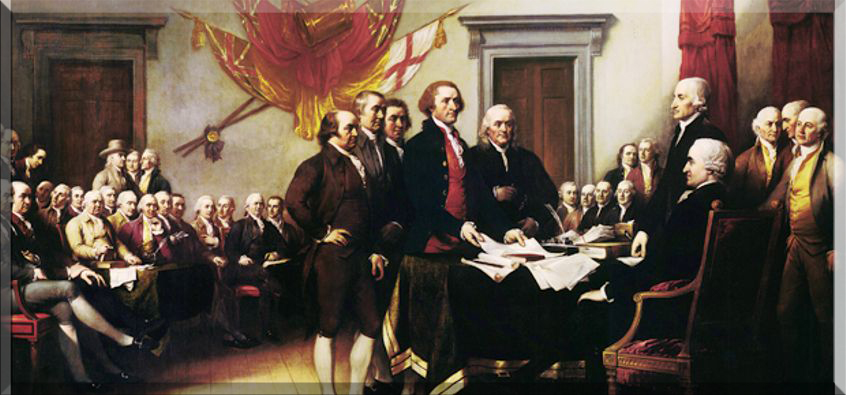Kerby Anderson
Recently, Jay Cost wrote that “The Declaration of Independence was more radical than any of the men who signed it.” Once you understand that important point, you can give more credit to the document than it currently receives on most college campuses.
The standard line is this: Thomas Jefferson wrote that all people are “endowed by their Creator with certain unalienable rights,” but he was a slave owner. There is a significant disconnect between his words and his deeds.
Jay Cost (author of the new book The Price of Greatness) argues that the Declaration set in motion the means to remove all governmental privilege. Over time, the Declaration was used to eliminate “property restrictions for voting, then abolition, women’s suffrage, and voting rights of African Americans — the justification for each of these revolutions was grounded in the philosophy of the Declaration.”
Now to be fair to Thomas Jefferson, he actually wrote in the first draft of the Declaration of Independence that the King “waged cruel war against human nature itself” against “a distant people who never offended him, captivating & carrying them into slavery in another hemisphere.” Those words were rejected by representatives from the southern colonies.
Jefferson also expressed his opinion that slavery was a “hideous blot” and that it constituted “moral depravity.” He also led an effort in the Virginia legislature to ban the slave trade. Later he proposed a program of slave emancipation and even urged federal legislation that would have banned slavery in the territories.
None of that is to defend Jefferson, but at least provide some context that is often missing in both academic and popular discussions of Jefferson and the Declaration. The document may not have banned slavery, but it did provide the foundation for the changes we enjoy today.
 Listen Online
Listen Online Watch Online
Watch Online Find a Station in Your Area
Find a Station in Your Area










 Listen Now
Listen Now Watch Online
Watch Online
